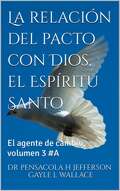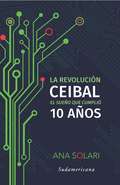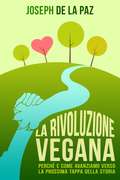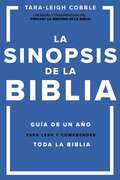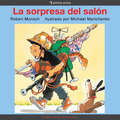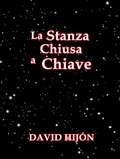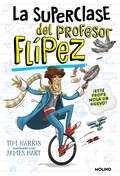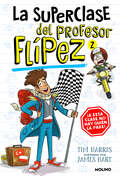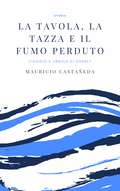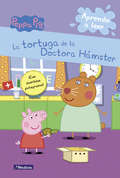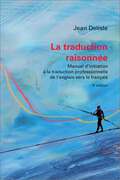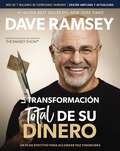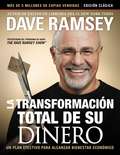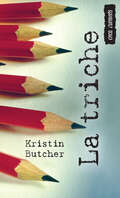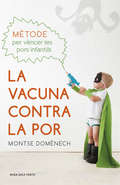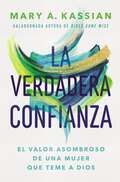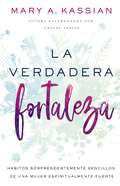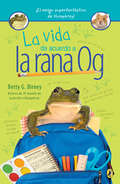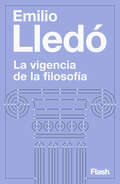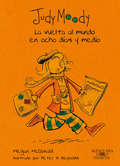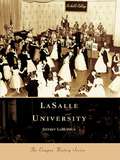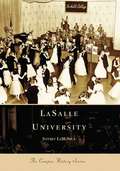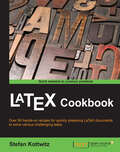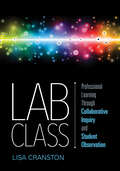- Table View
- List View
La relación del pacto con Dios, el Espíritu Santo # 3: El agente de cambio, volumen 3
by DR Pensacola H JeffersonLA RELACIÓN DEL PACTO CON DIOS, EL ESPÍRITU SANTO, Volumen 1, trata sobre cómo la “unidad del pacto” está unida por el vínculo del amor SANTO y conectada a través del Espíritu Santo. “…“ Dios con nosotros… ”(Mateo 1:23 LBLA). "... Dios es amor ..." (1 Juan 4: 4-8 KJV). "... Amor ... el VINCULO perfecto de UNIDAD ..." (Colosenses 3:14 LBLA). “… El que se une al Señor, es UN ESPÍRITU… [con Dios, el Padre por medio de Jesucristo, nuestro Señor]…” (1 Corintios 6:17 RV). LA RELACIÓN DEL PACTO CON DIOS, EL ESPÍRITU SANTO, Volumen 2, trata sobre la transformación del alma perdida y espiritualmente muerta en un "alma viviente". “... De modo que si alguno (mujer) está en Cristo, nueva criatura es: las cosas viejas pasaron; he aquí todas son hechas nuevas ... ”(2 Corintios 5:17 RV). "... y el hombre (mujer) se convirtió en un alma viviente (de nuevo) ..." (Génesis 2: 7 KJV). LA RELACIÓN DEL PACTO CON DIOS, EL ESPÍRITU SANTO, Volumen 3, partes A y B, trata sobre la “unidad del pacto” siendo la fuente para suplir TODAS las necesidades del pueblo de Dios: “… Dios suplirá todas [sus necesidades]…” (Filipenses 4:19 LBLA). “… Dios te proveerá generosamente todo lo que necesites…” (2 Corintios 9: 8 NTV). "... [de Dios] ... el Espíritu Santo ... es la FUENTE [de TODO] ..." (1 Corintios 12: 4-11 NTV). Dios, como la FUENTE de TODO, se refiere al Espíritu Santo como el ORIGEN del cual se obtienen principalmente las NECESIDADES de su pueblo. "... Yo soy el Alfa y la Omega ..." (Apocalipsis 1: 8 NASB). “... Yo ... [SOY] ... el primero, y con el postrer ... '" (Isaías 41: 4 NASB). DIOS, el Espíritu Santo), y aparte de [su PALABRA] nada [VIENE] a existir que [haya o VOLVERÁ] a existir ... (Juan 1: 1-4 LBLA). Dios es el ORIGEN. "..." YO SOY QUIÉN SOY ... ”(Éxodo 3: 14-15 NASB).
La revolución Ceibal: El sueño que cumplió 10 años
by Ana SolariEn 1824 Carlos Federico Lecor, Vizconde de la Laguna, procura imponer elorden en la recién creada Provincia Cisplatina, sin poder imaginar quecaerá víctima del embrujo de una hermosa y enigmática gitana quien lerobará el corazón. Todos oímos hablar del Plan Ceibal y es un hecho que las ya famosas ceibalitas tiñeron el paisaje cotidiano uruguayo en los últimos años. Con críticas y múltiples lagos, a nadie resultaindiferente, tampoco a referentes internacionales que han puesto lupa en esta experiencia que comenzó con el emblema un niño, una computadora. Pero ¿de qué se trata realmente? ¿Cuáles eran sus objetivos y a dónde ha llegado? ¿Cambió el mapa educativo del país o es un artificio? ¿Cuánto ha mitigado la llamada brecha digital? ¿Quiénes son sus aliados y cuáles sus resistencias? ¿Cómo ha sido su desarrollo y hacia dónde se dirige ahora? Es un hecho que el Plan Ceibal trasciende largamente el reparto de máquinas. Por eso, a diez años de su creación, la escritora Ana Solari realizó una investigación periodística que pasa raya a su influencia en los centros educativos y, en definitiva, sobre la comunidad, por medio de reportajes que recoge en primera persona, cara a cara con los actores: alumnos, docentes y mentores. Un abordaje «sobre el terreno» de esta «experiencia transformadora del enfoque pedagógico en Uruguay a través de la tecnología».Ceibal apoya esta iniciativa periodística que es una entre muchas posibles, en el empeño de dar a conocer su labor en permanente cambio.
La rivoluzione vegana: perché e come avanziamo verso la prossima tappa della storia
by Federico Renzi Joseph de la PazSei interessato al veganismo? Ti interessano gli animali? Sei preoccupato per la situazione mondiale? Vuoi sapere il motivo per cui il veganismo è il fenomeno più significativo della nostra epoca? Vuoi conoscere come sta cambiando il mondo? In questo libro emozionante e sorprendente, potrai scoprire: • una gamma completa di ragioni e vantaggi per cui sempre più persone sono oggi interessate al veganismo • informazione scientifica sulla salute, la psicologia, la sociologia, l'economia, la biologia e l'ecologia • perché il veganismo è più di una dieta e anche più di una filosofia • come sta cambiando la nostra percezione della salute pubblica, dei diritti degli animali e dell'ecologia • come si sta espandendo nel mondo il veganismo • una visione del futuro vegano che ci riguarda "Non c'è niente al mondo più potente di un'idea il cui tempo è venuto." (Victor Hugo) "Questo libro nasce per dare voce, argomenti e dati a una profonda convinzione interiore che abbiamo milioni di vegani e vegane di tutto il mondo. Questo è il cammino e non si può più tornare indietro". (Joseph de la Paz) Dopo le opere di Peter Singer, Gary Francione, Will Tuttle, Melanie Joy e Nick Cooney, arriva questa magnifica esposizione di quello che potrebbero significare il veganismo per l'umanità. Scopri il legame tra la liberazione animale, la liberazione umana e la liberazione del pianeta. Joseph de la Paz (Barcellona, 1973) è un educatore e attivista con studi accademici nel campo delle scienze politiche, la sociologia, la psicologia e la nutrizione. É sposato e padre di due bambine. Co-fondatore del neo nato Partito Vegano appena creato in Israele, musicista e viaggiatore instancabile viaggiatore, apporta un rinfrescante approccio multidisciplinare per analizzare e comprendere il fenomeno più interessante, emozionante e decisivo del XXI secolo: il veganismo.
La sinopsis de la Biblia: Guía de un año para leer y comprender toda la Biblia
by Tara-Leigh Cobble¿Alguna vez has cerrado tu Biblia y has pensado: ¿Qué es lo que acabo de leer?Tanto si eres nuevo en la Biblia como si te has criado en el segundo banco, la lectura de las Escrituras puede resultar a veces confusa o aburrida. Entenderla bien parece requerir leerla a fondo (e incluso repetidamente), pero ¿quién quiere leer algo que no entiende?Si alguna vez has deseado leer toda la Biblia, o inclusosisolohas querido tener el deseo de leerla, La sinopsis de la Biblia está aquí para ayudarte. Siguiendo un plan cronológico de lectura de la Biblia, estas recapitulaciones explican y conectan la historia de las Escrituras, sección por sección. Pronto te verás como un hijo de Dios que conoce y ama su Palabra de la manera que siempre has esperado.No tienes que ir al seminario. No necesitas una Biblia especial. Simplemente comienza a leer este libro junto con tu Biblia y ve lo que Dios tiene que decir sobre sí mismo en la historia que está contando.The Bible RecapHave you ever closed your Bible and thought, What did I just read? Whether you're brand-new to the Bible or you grew up in the second pew, reading Scripture can feel confusing or boring at times. Understanding it well seems to require reading it thoroughly (and even repeatedly), but who wants to read something they don't understand? If you've ever wanted to read through the Bible or even just wanted to want to read it, The Bible Recap is here to help. Following a chronological Bible reading plan, these recaps explain and connect the story of Scripture, section by section. Soon you'll see yourself as a child of God who knows and loves His Word in the ways you've always hoped for. You don't have to go to seminary. You don't need a special Bible. Just start reading this book alongside your Bible and see what God has to say about Himself in the story He's telling.
La sorpresa del salón
by Robert Munsch Michael MartchenkoBenjamín causa un gran alboroto en la escuela cuando decide traer a su hermanita bebé para la actividad de "mostrar y compartir".Este es un libro electrónico de diseño fijo, que mantiene el mismo diseño y formato de la edición impresa del mismo libro.
La stanza chiusa a chiave: Uno studio psicoanalitico su Rustin Cohle, personaggio di True Detective
by David Hijón RomeroQuesto saggio delinea un'analisi approfondita di Rustin Cohle, il protagonista della serie televisiva True Detective prodotta dalla HBO. Rustin Cohle è un detective che ha il compito di investigare sul caso di una donna assassinata, il cui corpo viene rinvenuto in una strana posizione il giorno del compleanno di sua figlia. È un personaggio riflessivo che si considera una persona realistica, ma in termini filosofici è consapevole di essere pessimista a causa della sua visione della vita e della realtà. Analizzeremo il comportamento di Rustin Cohle, il suo modo di guardare la realtà e la sua psiche (o come lui stesso la definisce, la stanza chiusa a chiave) da un punto di vista psicoanalitico. A questo scopo, ci serviremo della teoria psicoanalitica di Freud e delle recenti ricerche basate sulla teoria del trauma. Altri libri dell'autore: -The Transcendentalism of Kvothe -Crónicas de Gaia: Sangre y Polvo -Donderion, el Cuentacuentos
La superclase del profesor Flípez
by Tim HarrisNo te pierdas las aventuras del profe de primaria más imaginativo. Llega cargado de risas, aventuras ¡y muchas diversión! El profesor Flípez ha sido el primero en prepararnos el desayuno. ¿Es su escarabajo deslumbrante tan peligroso como dice? He escuchado que bebió leche de yak en Mongolia. Es la única persona a la que no le da miedo la cocinera Carolina. Mi madre dice que antes trabajaba en el circo.La clase 12B tiene un nuevo profesor, y ya nada volverá a ser como antes...
La superclase del profesor Flípez 2
by Tim HarrisEl profe más divertido de la escuela vuelve con nuevos trucos, nuevas aventuras y algún as bajo la manga. La clase de 12B se ha vuelto viral y no es de extrañar: ¡el profesor Flípez ha llegado a la escuela para acabar con los viejos modelos de enseñanza y ¿freírse un huevo frito para desayunar en medio de clase? ¡Correcto!
La tavola, la tazza e il fumo perduto
by Eleonora MorettoCharly e Ursula intraprenderanno un viaggio che darà loro una lezione profonda ed importante.
La tortuga de la Doctora Hámster (Peppa Pig. Pictogramas #Volumen)
by Hasbro EoneUn nuevo título de la colección Aprendo a leer con Peppa. Se incluyen pictogramas para facilitar la lectura y actividades para reforzar el aprendizaje. La Doctora Hámster ha traído unas mascotas a clase. Los alumnos están tan emocionados que no se dan cuenta de que la pequeña tortuga ha desaparecido. ¿Dónde estará? ¡Para que los más peques se diviertan leyendo y aprendiendo vocabulario!
La traduction raisonnée, 3e édition: Manuel d’initiation à la traduction professionnelle de l’anglais vers le français (Pédagogie de la traduction)
by Marco A. Fiola Jean DelisleCe manuel, dont la visée est essentiellement pratique, propose une méthode d’initiation à la traduction professionnelle, par opposition aux exercices de traduction axés sur l’acquisition d’une langue étrangère. Il répond aux exigences particulières de formation des futurs traducteurs de métier et s’adresse tout particulièrement, mais non exclusivement, aux étudiants des programmes universitaires de traduction. Son domaine est celui des textes pragmatiques généraux, formulés selon les normes de la langue écrite et en vue d’un apprentissage dans le sens anglais - français. Le manuel renferme 9 objectifs généraux d’apprentissage, 75 objectifs spécifques, 85 textes à traduire, 253 exercices d’application, un glossaire de 275 notions, une bibliographie de 410 titres et des milliers d’exemples de traduction.Published in French.
La transformación total de su dinero Actualizada y Ampliada: Un plan efectivo para alcanzar paz financiera
by Dave Ramsey¿Quieres elaborar un presupuesto que realmente funcione para ti? ¿Estás preparado para transformar tu relación con el dinero? Este best seller del New York Times ha ayudado a millones de personas como tú a desarrollar hábitos cotidianos de ahorro con la ayuda del experto en finanzas personales favorito de Estados Unidos, Dave Ramsey.A estas alturas, ya has oído hablar de todos los esquemas absurdos para hacerse rico rápidamente y de las modas de dietas fiscales que te dejan con un montón de ideas extravagantes, pero ni un céntimo en el bolsillo. Si estás cansado de las mentiras y harto de falsas promesas, Dave está aquí para proporcionarte ayuda práctica y a largo plazo. Esta edición actualizada y ampliada es el plan de juego más sencillo y directo para cambiar por completo tus finanzas y, lo mejor de todo, estos principios se basan en resultados, no en fantasías. Este es el cambio financiero que estabas buscando.Este libro te dará las herramientas y el estímulo que necesitas para:Diseñar un plan infalible para saldar todas tus deudas, desde el auto hasta la casa y todo lo demás, utilizando el método de deudas de la bola de nieve.Romper con los malos hábitos y hacer cambios duraderos en tu relación con el dineroReconocer los 10 mitos más peligrosos sobre el dineroReservar dinero suficiente para gastos imprevistos y emergenciasAhorrar suficiente dinero para tu jubilación¡Vive como nadie, para que luego puedas VIVIR (y DAR) como nadie!Esta edición incluye nuevo contenido que te ayudará a abordar conflictos matrimoniales, deudas universitarias y mucho más. Cada ejemplar incluye nuevos recursos al final del libro para convertir la transformación total de su dinero en tu nueva realidad.The Total Money Makeover Updated and ExpandedDo you want to build a budget that actually works for you? Are you ready to transform your relationship with money? This New York Times bestseller has already helped millions of people just like you learn how to develop everyday money-saving habits with the help of America's favorite personal finance expert, Dave Ramsey.By now, you've already heard all of the nutty get-rich-quick schemes and the fiscal diet fads that leave you with a lot of quirky ideas but not a penny in your pocket. If you're tired of the lies and sick of the false promises, Dave is here to provide practical, long-term help. This updated edition is the simplest, most straightforward game plan for completely changing your finances. And, best of all, these principles are based on results, not pie-in-the-sky fantasies. This is the financial reset you've been looking for.This book will give you the tools and the encouragement you need to:Design a sure-fire plan for paying off all debt--from your cars to your home and everything in between using the debt snowball methodBreak bad habits and make lasting changes when it comes to your relationship with moneyRecognize the 10 most dangerous money mythsSet aside enough money to pay for unexpected expenses and emergenciesSave enough money for your retirementLive like no one else, so later you can LIVE (and GIVE) like no one else!This edition includes new content that will help you tackle marriage conflict, college debt, and so much more. Each copy also includes brand new back-of-the-book resources to help you make Total Money Makeover your new reality.
La transformación total de su dinero: Un plan efectivo para alcanzar bienestar financiero
by Dave Ramsey¡El best seller del New York Times! ¡Más de cinco millones de copias vendidas! Usted PUEDE tomar control de su dinero. Fortalezca sus músculos financieros con el entrenador monetario favorito de Estados Unidos.Bien, amigo, ¿quieres convertir esos gastos gordos y flácidos en un presupuesto bien tonificado? ¿Quieres transformar tus pequeñas y tristes cuentas bancarias en cajeros automáticos con mucho dinero? Aquí está la respuesta. Hay una forma segura de poner en forma tus finanzas, y es con La transformación total de su dinero: Edición clásica. A estas alturas, has escuchado todos los sistemas de cómo hacerse rico rápido. Sabes sobre la última dieta fiscal de moda que deja muchas ideas extravagantes, pero sin un centavo en el bolsillo. Si estás cansado de las mentiras y cansado de las falsas promesas, échale un vistazo a esto: es el plan de juego más simple y directo para cambiar completamente tus hábitos en el uso de dinero. Este se basa en resultados, no en ficción. Con La Tansformación total de su dinero: Edición clásica, podrás: Diseñar un plan seguro para pagar todas las deudas - automóviles, casas, todo.Aprende a reconocer los 10 mitos del dinero más peligrosos (estos te matarán)¡Garantiza tener ahorros para emergencias y tu jubilación!Incluye nuevos cuadros de las "Diatribas de Dave" ampliadas que abordan conflictos matrimoniales, deudas universitarias y más. Con formas completamente nuevas y recursos al final del libro para hacer La transformación total de su dinero una realidad.Total Money Makeover: Classic EditionNew York Times bestseller! More than Five million copies sold!You CAN take control of your money. Build up your money muscles with America&’s favorite finance coach.Okay, folks, do you want to turn those fat and flabby expenses into a well-toned budget? Do you want to transform your sad and skinny little bank account into a bulked-up cash machine? Then get with the program, people. There&’s one sure way to whip your finances into shape, and that&’s with The Total Money Makeover: Classic Edition.By now, you&’ve heard all the nutty get-rich-quick schemes, the fiscal diet fads that leave you with a lot of kooky ideas but not a penny in your pocket. Hey, if you&’re tired of the lies and sick of the false promises, take a look at this—it&’s the simplest, most straightforward game plan for completely making over your money habits. And it&’s based on results, not pie-in-the-sky fantasies. With The Total Money Makeover: Classic Edition, you&’ll be able to:Design a sure-fire plan for paying off all debt—meaning cars, houses, everythingRecognize the 10 most dangerous money myths (these will kill you)Secure a big, fat nest egg for emergencies and retirement!
La triche: (Cheat) (Orca Currents en Français)
by Kristin ButcherLaurel se découvre une passion pour le journalisme d'investigation. Pour écrire un article-choc, elle mène une enquête sur une triche à son école. Elle découvre que la tricherie est généralisée—beaucoup plus qu'elle ne l'avait imaginé. Aveugle à toute autre préoccupation, Laurel est prête à perdre ses amies pour tirer cette histoire au clair. Mais son ultime découverte change tout.
La vacuna contra la por: Mètode per vèncer les pors infantils
by Montse DomènechMontse Domènech volca en aquest llibre els seus quaranta anys d'experiència tractant a nens i adolescents, per oferir als pares un mètode senzill i pràctic per afrontar el problema de les pors infantils. Aquest llibre s'adreça a totes les famílies amb nens, tinguin l'edat que tinguin. Malgrat el trastorn que causen tant en els nens i com en les famílies, les pors infantils són sentiments naturals inevitables que contribueixen a formar la ment humana, ja que ajuden a fer que els joves desenvolupin la imaginació, aprenguin a fer front als problemes i a protegir-se dels perills. Per als pares, aquestes pors poden convertir-se en un veritable problema. O bé perquè no saben com solucionar-les o bé perquè interfereixen en la convivència familiar, aquest tema sol ser un de les motius per als quals els pares busquen amb més freqüència el consell d'un professional. La vacuna contra la por ofereix un mètode indispensable, pràctic i senzill per tal que els pares comprenguin les pors dels seus fills i els ajudin a superar-les. Ofereix la solució per als temors més comuns i que Montse Domènech ha tractat al llarg de la seva trajectòria professional: terrors nocturns, malsons, somnambulisme, por a l'escola, a nedar, a la separació dels pares, als lladres, al metge... i molts d'altres. A més d'explorar aquests estats emocionals tan complicats, aquest llibre ens ofereix jocs i contes per llegir-los als nens abans d'anar a dormir, de manera que aquesta guia es converteix en una «vacuna» imaginària que allunyi les pors per sempre i els retorni el somriure.
La verdadera confianza: El valor asombroso de una mujer que teme a Dios
by Mary A. Kassian¿Qué pasaría si dejáramos de poner nuestra confianza en las cosas de este mundo y, en cambio, pusiéramos nuestra confianza en el único que es verdaderamente digno de confianza?A medida que comiences a aplicar el material de cada capítulo, descubrirás:el verdadero significado de la confianzala diferencia entre el miedo negativo y el miedo positivo, ycómo cambiar la herramienta del miedo del Enemigo con una confianza fuerte.Sé sincera: ¿Quién de nosotras no está plagada de miedos, inseguridades y dudas sobre sí misma?La sabiduría popular dice que la solución es simplemente creer más firmemente en nosotras mismas. Pero la galardonada autora y conferenciante Mary A. Kassian explica que la forma de combatir el miedo es con más miedo, miedo de un tipo diferente.En esta continuación de su popular libro La verdadera fortaleza, Kassian recurre de nuevo a sus vastos conocimientos bíblicos para mostrarnos una forma mejor de navegar por la vida. Compara la definición bíblica de confianza con las trilladas fórmulas de autoayuda del mundo y nos pone en el camino correcto.Tanto si buscas más confianza como si ya te sientes llena de ella, cuando te apoyes en una fuente de confianza que es inmutable, firme y digna de confianza, te parecerás más a la mujer audaz y valiente que Dios quiso que fueras.The Right Kind of ConfidentWhat if we stopped placing our confidence in the things of this world—and instead put our trust in the only one who is truly trustworthy?As you begin to apply each chapter&’s material, you&’ll discoverthe true meaning of confidence,the difference between negative fear and positive fear, andhow to turn the Enemy&’s tool of fear on its head with strong confidence.Be honest: Who among us isn&’t plagued with fears, insecurities, and self-doubt?Popular wisdom says the solution is to simply believe more strongly in ourselves. But award-winning author and speaker Mary A. Kassian explains that the way to combat fear is with more fear—fear of a different kind.In this follow-up to her popular book The Right Kind of Strong, Kassian again draws on her vast biblical knowledge to show us a better way to navigate life. She compares the Bible&’s definition of confidence with the world&’s well-worn self-help formulas and sets us on the right path.Whether you&’re seeking more confidence or already feeling full of it, when you lean into a source of confidence that is unchanging, firm, and trustworthy, you&’ll become more like the bold, courageous woman God created you to be.
La verdadera fortaleza: Hábitos sorprendentemente sencillos de una mujer espiritualmente fuerte
by Mary A. KassianLa galardonada autora Mary Kassian proporciona una guía bíblica para convertirse en las mujeres fuertes, resistentes y capaces que Dios creó.Nuestra cultura nos enseña que es importante que las mujeres sean fuertes. La Biblia está de acuerdo. Desafortunadamente, la idea de la cultura de lo que hace a una mujer fuerte no siempre se alinea con la Biblia. Como resultado, los cristianos a menudo tienen una visión sesgada de lo que constituye fuerza. En La verdadera fortaleza, Mary Kassian profundiza en la exhortación de Pablo en 2 Timoteo sobre las mujeres de la iglesia en Éfeso y descubre advertencias y verdades sobre siete hábitos que pueden minar la fortaleza de las mujeres. Ella revela cómo, al protegerse contra estos siete escollos, las mujeres cristianas pueden caminar en libertad y crecer para ser fuertes a la manera de Dios.
La vida de acuerdo a la rana Og (Og the Frog #1)
by Betty G. BirneyEl segundo libro de la serie de la mejor rana mascota en la sala 26, ¡ahora en español!Og la rana acaba de mudarse a la habitación 26, y el lugar está saltando. Hay niños animados, nuevas rutinas y un vecino peludo que parece chillar todo el día. Por suerte, todo el mundo parece amigable y - ¡BING, BANG, BOING! - algunos incluso ponen grillos jugosos en su tanque. Pero justo cuando Og se está acostumbrando a esta nueva vida, se habla de enviarlo de vuelta al estanque. Claro, extraña a sus amigos, pero ahora tiene mucho más tiempo para su pasatiempo favorito, inventar canciones y poemas, y le encanta escuchar a sus nuevos amigos y alentarlos a BOINGS cuando los necesitan. Y hay un suministro constante de grillos. . . Og no quiere decir adiós a su nueva vida ni a su peludo vecino. ¿Pero decidirán sus compañeros de clase mantener a Og como su mascota de aula o devolverlo a su antigua vida, en el estanque?
La vigencia de la filosofía
by Emilio LledóUna defensa acérrima de la utilidad de la filosofía en nuestros días de la mano del gran pensador Emilio Lledó. «[...] la filosofía se nos aparece como una ocupación de algunos hombres, tan real e importante como esas otras ocupaciones que han modificado, técnica o artísticamente, la faz del mundo y las relaciones humanas.» ¿Está la filosofía en crisis o sigue siendo una ocupación necesaria para entender y analizar el mundo? ¿Puede considerarse la filosofía un oficio? ¿Cómo debe dialogar la filosofía con la historia precedente o con la ciencia y la tecnología de nuestro siglo? Bajo estos interrogantes, el gran pensador Emilio Lledó atiende la urgencia de recuperar la filosofía como una materia indispensable para ejercer un pensamiento crítico y teje un texto que ensalza las virtudes inexcusables y atemporales del saber filosófico en la modernidad y la era del consumismo. Galardonado con el Premio Nacional de las Letras Españolas 2014 y el Premio Princesa de Asturias 2015, Emilio Lledó ha colocado la filosofía en el centro de todas sus obras y la ha defendido como base de toda educación. El texto aquí presentado pertenece a su obra Sobre la educación (Taurus, 2018). Sobre el autor:«Si hubiera muchos intelectuales como Lledó el nuestro sería un país bien distinto.»Elvira Lindo «Pocos intelectuales se ciñen con tanta justeza al concepto de sabio. Desde la atalaya de sus 94 años, Lledó sigue mirando al futuro».Guillermo Altares, El País «Un diccionario de alertas con el destello de los grandes filósofos detrás para advertir de la gran herencia de la cultura como herramienta de civilización, de progreso, de justicia y de verdad.»Antonio Lucas, El Mundo «Un gran ensayista y divulgador de alto nivel, entre los temas que trata destacan la defensa de la lectura, la felicidad, el silencio, la bellezay la verdad.»Winston Manrique, El País
La vuelta al mundo en ocho días y medio (Colección Judy Moody #Volumen 7)
by Megan McDonaldNuevas aventuras de la intrépida Judy Moody y sus inseparables amigos. Esta vez intenta llevar a cabo ella sola un trabajo escolar sobre Italia que debían hacer en grupo. Judy Moody no puede creer lo que está oyendo. Ahí, en la mesa del comedor, una chica llamada Amy Namey está entrevistando a sus mejores amigos, Rocky y Frank. ¿Será esta chica la nueva peor enemiga de Judy? ¿O su nueva mejor amiga? Judy Moody va a aprender cómo se construye una amistad mientras se embarca con toda su clase en una apasionante gira por el mundo.
LaSalle University
by Jeffrey LamonicaThe history of LaSalle University, located in Philadelphia, dates back nearly 150 years. The institution has occupied various locations throughout the city, including the Bouvier Family Mansion from 1886 to 1930. Original photographs of Archbishop James Wood and the Christian Brothers, who founded LaSalle College in 1863, are among the featured images portraying the personalities who shaped LaSalle. Tom Gola and the 1954 NCAA men's basketball championship team and Tom Curley, cocreator of USA Today, are among LaSalle's star athletes and prominent graduates. LaSalle University places the school's story into the context of the history of the United States by presenting photographs that capture the essence of World War II, the cold war, the 1960s, and other key moments in American history.
LaSalle University (The Campus History Series)
by Jeffrey LamonicaThe history of LaSalle University, located in Philadelphia, dates back nearly 150 years. The institution has occupied various locations throughout the city, including the Bouvier Family Mansion from 1886 to 1930. Original photographs of Archbishop James Wood and the Christian Brothers, who founded LaSalle College in 1863, are among the featured images portraying the personalities who shaped LaSalle. Tom Gola and the 1954 NCAA men's basketball championship team and Tom Curley, cocreator of USA Today, are among LaSalle's star athletes and prominent graduates. LaSalle University places the school's story into the context of the history of the United States by presenting photographs that capture the essence of World War II, the cold war, the 1960s, and other key moments in American history.
LaTeX Cookbook: Over 90 hands-on recipes for quickly preparing LaTex documents to solve various challenging tasks
by Stefan KottwitzA pragmatic guide with actionable recipes on LaTex to apply for tuning text, custom designs, fonts, embedding images, tables, advanced mathematics, and graphics for all your complex documentsKey FeaturesWork with modern document classes, such as KOMA-Script classesExplore the latest LaTeX packages, including TikZ, pgfplots, and biblatexAn example-driven approach to creating stunning graphics directly within LaTeXBook DescriptionLaTeX is a high-quality typesetting software and is very popular, especially among scientists. Its programming language gives you full control over every aspect of your documents, no matter how complex they are. LaTeX's huge amount of customizable templates and supporting packages cover most aspects of writing with embedded typographic expertise.With this book you will learn to leverage the capabilities of the latest document classes and explore the functionalities of the newest packages.The book starts with examples of common document types. It provides you with samples for tuning text design, using fonts, embedding images, and creating legible tables. Common document parts such as the bibliography, glossary, and index are covered, with LaTeX's modern approach.You will learn how to create excellent graphics directly within LaTeX, including diagrams and plots quickly and easily.Finally, you will discover how to use the new engines XeTeX and LuaTeX for advanced programming and calculating with LaTeX.The example-driven approach of this book is sure to increase your productivity.What you will learnChoose the right document class for your project to customize its featuresUtilize fonts globally and locallyFrame, shape, arrange, and annotate imagesAdd a bibliography, a glossary, and an indexCreate colorful graphics including diagrams, flow charts, bar charts, trees, plots in 2d and 3d, time lines, and mindmapsSolve typical tasks for various sciences including math, physics, chemistry, electrotechnics, and computer scienceOptimize PDF output and enrich it with meta data, annotations, popups, animations, and fillin fieldsExplore the outstanding capabilities of the newest engines and formats such as XeLaTeX, LuaLaTeX, and LaTeX3Who this book is forIf you already know the basics of LaTeX and you like to get fast, efficient solutions, this is the perfect book for you. If you are an advanced reader, you can use this book's example-driven format to take your skillset to the next level. Some familiarity with the basic syntax of LaTeX and how to use the editor of your choice for compiling is required.
Lab Class: Professional Learning Through Collaborative Inquiry and Student Observation
by Lisa Ann CranstonSchool-based, collaborative teacher learning that drives student achievement Meaningful growth in teacher practice comes when we invest in teacher-led, inquiry-based collaborative models where teachers get to roll up their sleeves and study what’s really going on in classrooms. Lab Class introduces an observation-based professional learning design that helps teachers collaboratively plan, investigate, and develop solutions to a specific problem of practice by observing a host teacher’s classroom through the eyes of students. This book provides instructional leaders and team facilitators with observation protocols that encourage teachers to: Plan collaborative inquiry projects by identifying a focus of the inquiry, combing the research literature, creating norms for observations, and identifying resources needed Observe and analyze student conversations, actions, and products to determine the impact of instructional decisions on students Identify patterns from observations and determine next steps for professional learning Close the knowing-doing gap by bringing professional learning out of workshops and back where it belongs—in the classroom! "For those looking to empower teachers by bringing the learning of teaching closer to the classroom, this resource will help you achieve your goals." —Jenni Donohoo, Provincial Literacy Lead, Council of Ontario Directors of Education Author of Collective Efficacy "Lab Class is a professional learning structure to take learning walks to the next level. It provides a process to deepen inquiry and focus teacher observations and learning." —Ellen S. Perconti, Superintendent Mary M. Knight School District, WA
Lab Class: Professional Learning Through Collaborative Inquiry and Student Observation
by Lisa Ann CranstonSchool-based, collaborative teacher learning that drives student achievement Meaningful growth in teacher practice comes when we invest in teacher-led, inquiry-based collaborative models where teachers get to roll up their sleeves and study what’s really going on in classrooms. Lab Class introduces an observation-based professional learning design that helps teachers collaboratively plan, investigate, and develop solutions to a specific problem of practice by observing a host teacher’s classroom through the eyes of students. This book provides instructional leaders and team facilitators with observation protocols that encourage teachers to: Plan collaborative inquiry projects by identifying a focus of the inquiry, combing the research literature, creating norms for observations, and identifying resources needed Observe and analyze student conversations, actions, and products to determine the impact of instructional decisions on students Identify patterns from observations and determine next steps for professional learning Close the knowing-doing gap by bringing professional learning out of workshops and back where it belongs—in the classroom! "For those looking to empower teachers by bringing the learning of teaching closer to the classroom, this resource will help you achieve your goals." —Jenni Donohoo, Provincial Literacy Lead, Council of Ontario Directors of Education Author of Collective Efficacy "Lab Class is a professional learning structure to take learning walks to the next level. It provides a process to deepen inquiry and focus teacher observations and learning." —Ellen S. Perconti, Superintendent Mary M. Knight School District, WA
